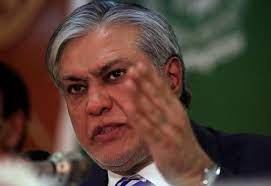Pakistani PM approves IMF deal, Geo reports, without giving details

Pakistani PM approves IMF deal, Geo reports, without giving details: Pakistan’s Prime Minister Shahbaz Sharif has approved a deal with the International Monetary Fund (IMF) and all matters over the bailout programme are settled, citing sources. Cash-strapped Pakistan was scheduled to end its discussions with the IMF in an effort to release frozen cash from a $6.5 billion bailout to prevent an economic meltdown.
February 2023 Current Affairs Quiz
The Timeline of Pak-IMF Deal:
Earlier, an AFP report said Pakistan’s government remained locked in crunch talks with the IMF over the release of a crucial financial bailout on the last scheduled day of the global lender’s visit to the country. Recently, a group from the International Monetary Fund (IMF) arrived in Islamabad to discuss the difficult circumstances that Prime Minister Shehbaz Sharif described as “beyond imagination.”
The IMF is clearly asking for much more than what the government is willing to do, even with a little bit of arm twisting, said economic analyst Abid Hasan, a former adviser to the World Bank.
Finance Minister Ishaq Dar told reporters that “a final round of talks is going on”.
The IMF wants a boost to the pitifully low tax base, an end to tax exemptions for the export sector, and further hikes to artificially low petrol, electricity and gas prices meant to help low-income families. It is also pushing for Pakistan to keep a sustainable amount of US dollars in the bank through guarantees of further support from friendly nations Saudi Arabia, China and the UAE, as well as the World Bank. With the IMF, Pakistan had drafted a $6.5 billion loan package, of which roughly half has been paid thus far.
Pak-IMF Deal: Asking for much more
As a part of a $6.5 billion package agreed upon in 2019, the government secured a loan in the amount of $1.1 billion in August. But it has been halted multiple times because of Islamabad’s failure to meet loan conditions and disagreements over spending plans after the floods.
Pakistan’s Economic Crisis:
Pakistan’s economy is in dire straits, stricken by a balance of payments crisis as it attempts to service high levels of external debt amid political chaos and deteriorating security. Fresh data from the central bank showed that its foreign exchange reserves had fallen by $170 million in only one week, to barely $2.9 billion.
Years of financial mismanagement and political instability have damaged Pakistan’s economy — damage exacerbated by a global energy crisis and devastating floods that submerged a third of the country. The government loosened controls on the rupee to rein in a rampant black market in US dollars — a step that caused the currency to plunge to a record low — and hiked petrol prices by 16 per cent.
Struggling industries are battling for the government to unblock imports, with thousands of shipping containers held up at Karachi port. The steel industry has warned the government that unless scrap metal imports are restarted, there will be a cascading effect on employment.
The benchmark stock index rose 1.8% at close, up for a fourth day, while the rupee strengthened 1% to 270.51 per dollar. Its dollar bonds also gained with notes due in 2024 indicated 4.5 cents higher, to trade at 59.6 cents on the dollar, the biggest jump in about two month.